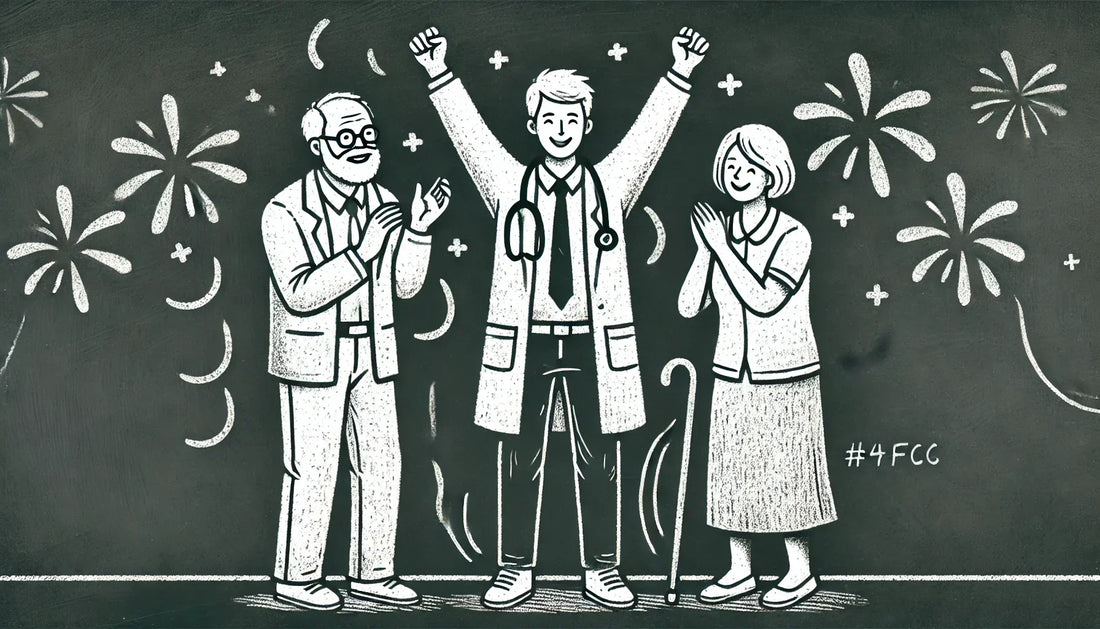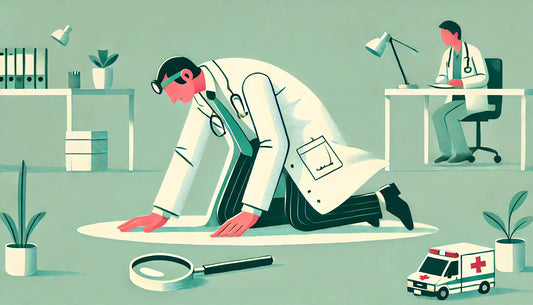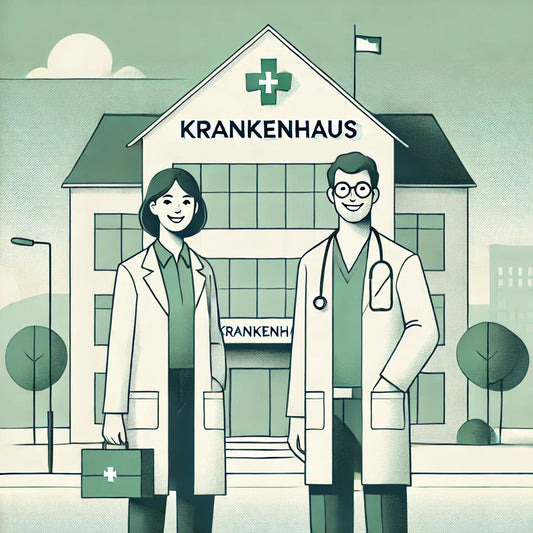Congratulations! You’ve successfully obtained your medical license (Approbation) in Germany—a significant milestone in your medical career. But what comes next? How do you obtain that coveted medical residency in Germany? This blog will guide you through the steps necessary to secure your ideal medical residency in Germany, offering practical advice, insights, and expert tips.
After obtaining your Approbation, let’s examine the critical aspects of finding and securing a medical residency in Germany.
Understanding the Process: Starting a Medical Residency in Germany
Unlike countries like the USA or India, where medical residencies are often assigned through a centralized match system or entrance exams, securing a medical residency in Germany is a more independent and personalized process. This unique system of joining medical residency programs provides you the freedom to shape your career. You won’t find a national exam or a centralized counselling session automatically placing you in a residency program. Instead, you are responsible for researching, applying, and interviewing for positions that align with your aspirations.
While this process may seem daunting, it also gives you the freedom to pursue a medical residency in a specialisation that genuinely resonates with your professional aspirations.
Research Job Opportunities for Medical Residency in Germany

The first and most crucial step in securing a medical residency in Germany is thorough research. This involves identifying hospitals and departments that offer residency programs in your desired speciality. Here’s how to get started:
1. Explore Hospital Websites
Most hospitals in Germany post their residency openings on their official websites. Regularly checking the hospital websites will help you stay informed about available positions.
2. Leverage Medical Networks
Connect with other doctors, both local and international, who are already practising in Germany. They can provide insights into the application process and even inform you of openings that might not be widely advertised.
3. Use Job Portals
Platforms like Ärzteblatt and Medi-Jobs specialize in medical job postings. These can be excellent resources for finding residency positions across various specialities and locations.
Patience and attention to detail are your best allies during this phase. Keep track of application deadlines, and tailor your search to find the best fit for your skills and interests. Remember, the thoroughness of your research will set the foundation for your successful residency application.
Prepare Your Application for Medical Residency in Germany

Once you’ve identified potential residency positions, the next step is to prepare a compelling application. A well-curated application is crucial to make a solid first impression. Here’s what you need:
1. Cover Letter (Anschreiben)
Your cover letter must be concise and personalized. Clearly state your interest in the specific department and how your previous experience and qualifications align with the position.
2. Curriculum Vitae (Lebenslauf)
Create a proper and a professional CV that highlights your academic achievements, clinical experience, and any relevant certifications. Ensure it’s well-organized and easy to read.
3. Supporting Documents
Attach your German language certificate, MBBS degree, you medical license (Approbation) and any other relevant qualifications.
Once your application is ready, submit it promptly and follow up as needed. The application process is competitive, so learn to present yourself as a strong candidate.
Preparing for an Interview: Securing Residency in Germany as a Foreign Doctor
Securing an interview is a significant step forward in your journey to obtaining a residency. Germany currently faces a shortage of medical professionals, which can work in your favour, but you must prepare thoroughly to succeed in the interview. The interview is your opportunity to demonstrate your suitability for the residency. Here’s how:
1. Common Interview Questions
Prepare for questions like, “Why are you interested in this speciality?”, “Why did you choose to work in Germany?” and “What are your strengths and weaknesses?”. Be ready to discuss your long-term career plans and how they align with the residency program.
2. Research the Department
Familiarize yourself with the department’s focus areas, the head of the department, and their research interests. This preparation shows you are serious about the position and provides valuable talking points during the interview.
3. Practice Your German
Ensure your German language skills are up to par, especially in medical terminology. Clear communication is critical during the interview, so practice speaking about medical cases and scenarios in German.
Entering the interview confidently and clearly understanding what the residency entails will set you apart as a well-prepared candidate.
Choosing the Right Specialty for Medical Residency in Germany
Choosing a speciality is one of the most critical decisions in your medical career. Each speciality for medical residency in Germany comes with its own set of requirements, including the duration of the training, the knowledge base required, and the nature of the work involved. Here are some steps to help you choose the right path:
1. Self-Assessment
Reflect on your interests, strengths, and long-term career goals. Consider what types of medical cases excite you and where you see yourself in the future.
2. Research Specialty Requirements
Each speciality has specific training requirements. Review the requirements of residency programs in Germany to understand the expected training duration, examinations, and practical experience.
3. Seek Mentorship
If possible, find a mentor within the speciality you are interested in. They can provide insights into the field’s daily responsibilities, challenges, and rewards, helping you make a more informed decision.
Remember, your choice of speciality should align with your current interests and be flexible enough to adapt as your career evolves.
Role of a Hospitation: Starting a Medical Residency in Germany

One of the best ways to determine if a particular department or speciality fits you is through applying for a Hospitation or observership before starting a medical residency in Germany. This involves spending time in the department to observe the workflow, interact with the medical staff, and get a feel for the environment. Here’s why Hospitation is invaluable:
1. First-Hand Experience
A Hospitation allows you to experience the department’s daily operations, including patient care, administrative tasks, and teamwork. This exposure helps you understand what to expect and assess whether it matches your career goals.
2. Networking Opportunities
During your Hospitation, you’ll have the opportunity to interact with residents, attendings, and other staff members. Building these connections can be beneficial when applying for a residency or seeking Mentorship.
3. Informed Decision-Making
By asking questions about the residency structure, mentorship opportunities, and research prospects, you can make a more informed decision about whether this is the right place for your residency training.
A successful Hospitation experience can also leave a positive impression on the department, potentially increasing your chances of being selected for a medical residency in Germany.
Changing Your Medical Residency in Germany: Flexibility
One of the unique aspects of the German medical residency system is its flexibility. Unlike many other countries, you are not locked into a single speciality once you start your residency. If your initial choice is not the right fit, you can switch specialities without starting over from scratch. Here’s how this flexibility benefits you:
1. Exploration
If you have multiple interests or are uncertain about your preferred speciality, the ability to switch allows you to explore different fields before making a final decision.
2. Career Satisfaction
By changing specialities, you can pursue a field that genuinely resonates with you, increasing your job satisfaction and long-term career success. It also allows you to keep earning the exceptional salary of a doctor in Germany.
3. Adaptability
The healthcare landscape is constantly evolving. This flexibility allows you to adapt to new developments and emerging fields, ensuring your career remains relevant and fulfilling.
This freedom to choose and change is a significant advantage of the German residency system. It allows you to find a path that not only aligns with your current interests but also offers room for growth and change.




